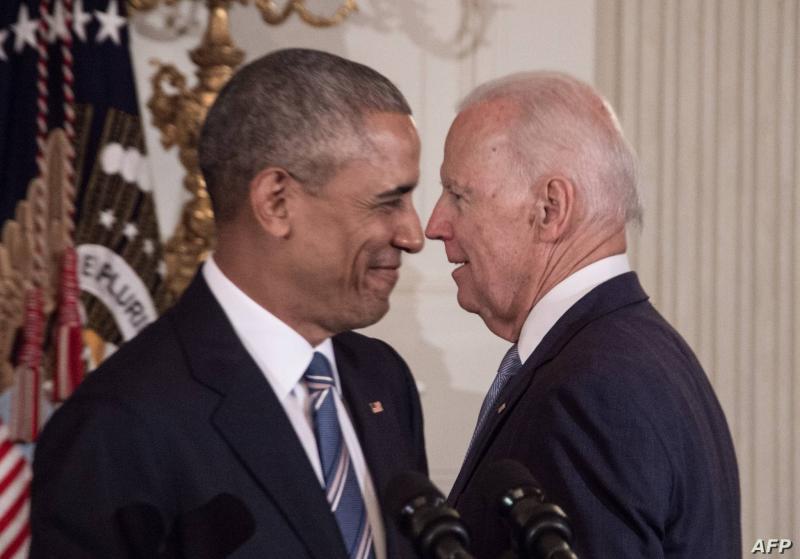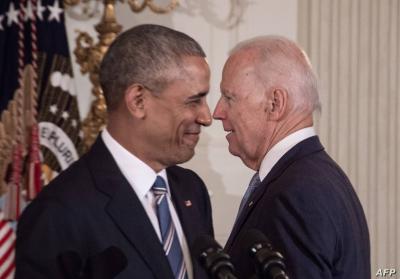Many expected Biden's presidency to be the third term of Obama. Their perception is understandable, as Biden initially ran on that premise. As an experienced politician, he set aside his self-importance, convened with his team, and stated that they needed to present themselves in this manner to be re-elected. Biden recognized the significance of his former president's charismatic and influential persona among their supporters and needed his backing.
Although Obama overlooked Biden and wounded his pride, preferring Hillary Clinton to face Trump—a move said to have altered the relationship between the two men—Biden did not hesitate to seek his support. The older man managed to seize the presidency and reclaim the White House for the Democrats. Initially, the shadow of Obama accompanied Biden, but it faded over time. After more than three years, it can be said that Biden has established a different identity, particularly concerning foreign policy.
In fact, the two men differ fundamentally in beliefs, not just tactics. President Obama is a believer in multipolarity, resentful of the role of the American policeman, and adopts an apologetic demeanor regarding America's past sins. His famous speech in Cairo, which began his presidency, was a message of apology and withdrawal from the region—a fact that only became clear later on. Based on this belief, President Obama acted. He withdrew from Iraq despite knowing that Iran would fill the vacuum. It is said that General Petraeus warned him about the dangers of a rapid withdrawal and that Iran wanted this, to which Obama responded, "I can see the map of Iraq hanging on your wall!"
Due to his deep skepticism about America's role in maintaining the international order, Obama backed down from confronting Russia when it occupied Crimea, which paved the way for the invasion of Ukraine years later. The story of the red line he threatened with and then retreated from is well-known. Relations with traditional allies declined, labeling them as "free riders," and he made a secret deal with Tehran, advocating for shared regional influence between Saudi Arabia and Iran.
This was Obama's worldview and way of thinking, particularly as he belonged to a different generation, being practically outside the political establishment. He came from outside and quickly rose to prominence, becoming a shining star. The interventions of President Bush’s administration in Afghanistan and Iraq reinforced this belief in him. This phenomenon typically occurs among presidents; the new president often heads in the opposite direction of his predecessor, trying to correct his mistakes and impose his vision and personality.
If we compare all this with President Biden, a difference in political beliefs and actions becomes evident. President Biden, who spent over 35 years in Congressional hallways, is an ardent believer in the liberal order shaped by America. His strong stance on Russia's invasion of Ukraine stems from this solid conviction. Because of it, he managed to unify a trembling Europe and keep Ukraine on its feet after Moscow nearly swallowed it. Now, Western missiles hit deep inside Russia.
Biden surpasses the assumed decorum among presidents, repeatedly attacking President Putin, labeling him a “killer,” “dictator,” and “illegitimate!” in an attempt to shatter the formidable image that the Russian president crafted for himself. This deep belief springs from his political doctrine, shaped after World War II, as he does not want the grim specters of the past to re-emerge.
Biden's stance toward Riyadh was initially tumultuous, but then saw a drastic shift, leading to a strong and close relationship poised for a historic defense agreement. Would we have expected this agreement to be made under President Obama? Probably not, as he viewed the region and relationships with Middle Eastern allies differently from President Biden, who believes in the importance of traditional alliances.
Biden's position on China aligns with his vision and belief in the Western role in countering the rising Chinese power, albeit more aggressively than Obama's conciliatory perspective or even Trump's. Biden criticized China at the onset of his term, and his stance has not changed; he has attacked it, deeming its economy on the brink of collapse, its power exaggerated, and its famous Belt and Road Initiative "dead before it was born."
Of course, these are all exaggerations, but they reflect a radically different mindset compared to his predecessor. Biden is a different character than Obama and not merely a shadow of him, as his opponents like to mock in an attempt to diminish his value and insult him. He has proven to be an independent and distinct figure. True, he may appear lost, stammer, and forget things, but his perspective on foreign policy and his vision for America's global role are characterized by clarity and brightness, akin to a sunny summer day.




